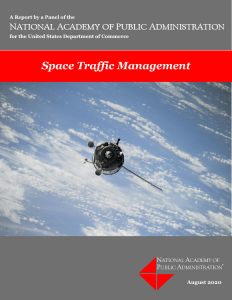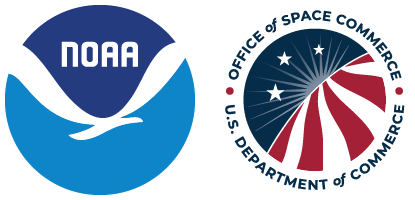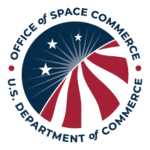Commerce Applauds NAPA Study Reaffirming the Department as the Lead Agency for Space Traffic Management
 Today, the National Academy of Public Administration (NAPA) released their Congressionally directed study, “Space Traffic Management: Assessment of the Feasibility, Expected Effectiveness, and Funding Implications of a Transfer of Space Traffic Management Functions.” The findings reaffirm that the Office of Space Commerce at the Department of Commerce is the best suited civil agency to perform Space Traffic Management (STM) tasks. The Panel unanimously requests that Congress immediately enact the authorities and appropriations required for OSC to carry out this critical mission.
Today, the National Academy of Public Administration (NAPA) released their Congressionally directed study, “Space Traffic Management: Assessment of the Feasibility, Expected Effectiveness, and Funding Implications of a Transfer of Space Traffic Management Functions.” The findings reaffirm that the Office of Space Commerce at the Department of Commerce is the best suited civil agency to perform Space Traffic Management (STM) tasks. The Panel unanimously requests that Congress immediately enact the authorities and appropriations required for OSC to carry out this critical mission.
“I am pleased to see that following an intensive survey of key government and industry stakeholders, NAPA’s findings independently validate that the Department of Commerce is the best civil agency to lead the commercial and international SSA/STM mission,” said Secretary of Commerce Wilbur Ross. “The findings of the Senior Panel highlight the urgent call to action needed to ensure a safe and sustainable space environment to support a thriving U.S. and global space economy. We look forward to working with the Congress to quickly advance this critical space mission.”
“The space operating environment has become more contested and competitive. This is driving the need for the U.S. Space Force to focus our space domain awareness capabilities on the military-unique aspects of our mission,” said Maj. Gen. Stephen Whiting, U.S. Space Force Deputy Commander. “We are excited about the Department of Commerce taking on basic space situational awareness and space traffic management functions because it both frees up the Department of Defense’s resources to focus on national defense, while allowing the Department of Commerce to rapidly innovate and mature the service called for in NAPA’s report. This is truly a partnership which will make America stronger while enabling the promise of space for the American economy and that of all space faring nations.”
Through its evaluation, the NAPA’s senior panel found the Office of Space Commerce’s concept of operations, which emphasizes flexibility and creativity to allow new innovations and creative commercial companies to thrive, as most capable of serving the strategic interests of the Nation and international space community.
The senior panel highlighted the key features of the Office of Space Commerce’s concept of operations as instrumental in their decision:
- OSC views STM as predominantly a data management function, rather than as a prescriptive regulatory role.
- To establish effective STM, OSC will implement a collaborative model that prioritizes its responsibilities as a convener, coordinator, and provider of trusted SSA data to the domestic and international space community. The system will not be defined by a large bureaucratic structure.
- The Department of Commerce, with its proven ability to effectively manage large, diverse, and complex data sets, provides essential technical expertise and other support to the Office of Space Commerce for SSA and STM tasks.
Deputy Assistant to the President and Executive Secretary of the National Space Council Dr. Scott Pace said, “The approach affirmed by the National Academy of Public Administration is exactly what was intended in Space Policy Directive-3: an innovative approach that, consistent with Administration policy, harnesses the private sector to help with an urgent and changing problem while advancing American leadership in the area of space safety and sustainability.”
“On behalf of the Office of Space Commerce, I would like to thank NAPA and the Senior Panel for their deep interest in the many complex aspects of dealing with the space debris problem. We are pleased with the affirmation of OSC’s role and the collaborative, open architecture approach that we have started to undertake, based on the President’s guidance in Space Policy Directive – 3,” said Director of the Commerce Department’s Office of Space Commerce Kevin O’Connell. “We look forward to working with our interagency, industry, and international partners to find rapid options for improving space safety and sustainability. The emergence of a new space safety industry is key to the growth of space commerce.”



